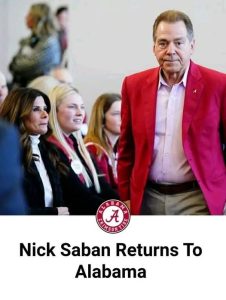
Few NFL quarterbacks have sparked as much debate in the Hall of Fame conversation as Matthew Stafford. With over 15 seasons of statistical excellence, a Super Bowl ring, and numerous clutch performances, many fans argue that he has earned his place among football’s immortals. Others, however, question whether Stafford’s legacy is more a product of inflated stats and situational success than true elite greatness.
The debate is louder than ever now as Stafford, entering the twilight of his career, continues to add to his resume. So, is Matthew Stafford a future Hall of Famer—or is he simply the beneficiary of a pass-heavy era with one unforgettable playoff run? Let’s dive into the data, context, and competing arguments shaping this controversial case.
The Case For Matthew Stafford: Numbers Don’t Lie
Let’s start with the obvious: Stafford’s statistics are exceptional.
As of the end of the 2024 NFL season, Stafford has thrown for:
- Over 57,000 passing yards (top 10 all-time)
- Over 370 touchdown passes
- More than 4,500 completions
- A career passer rating north of 90
He’s in elite company alongside names like Peyton Manning, Tom Brady, Drew Brees, and Aaron Rodgers in many passing categories. Longevity matters, and Stafford has demonstrated remarkable durability, starting every game for nine consecutive seasons from 2011 to 2019.
Moreover, **Stafford has one thing many great quarterbacks don’t—**a Super Bowl ring. His 2021 season with the Los Angeles Rams culminated in a championship and added a defining moment to his career. His playoff run was punctuated by game-winning drives, including a legendary throw to Cooper Kupp that helped beat the Tampa Bay Buccaneers in the Divisional Round.
“Stat Padford” No More
For years, critics derided Stafford as “Stat Padford,” suggesting he compiled gaudy numbers in garbage time while quarterbacking a perpetually underwhelming Detroit Lions franchise. But that moniker has aged poorly. His success with the Rams proved he could win when surrounded by a competent roster and coaching staff.
Stafford’s tenure in Detroit wasn’t devoid of heroics either. He holds the NFL record for the most comeback wins in a single season (8 in 2016), and he led 31 game-winning drives over his Lions career. These are not the stats of a meaningless compiler; they reflect a player capable of lifting his team—even when it lacked talent.
The Counterargument: Hall of Very Good, Not Hall of Fame
Despite the numbers and the Super Bowl title, some analysts remain unconvinced.
Why?
They point to a lack of consistent team success, especially in the prime of his career. Stafford’s record in Detroit was 74-90-1, and he failed to win a single playoff game in three postseason appearances with the Lions. Until joining the Rams, Stafford’s résumé was largely devoid of meaningful January football.
Critics argue that many of his gaudy numbers were inflated by a pass-happy league and years of playing from behind. His career completion percentage (around 63%) is respectable but not elite, and his interception totals (over 190) are high compared to other Hall of Fame candidates.
Unlike contemporaries such as Aaron Rodgers or Russell Wilson—who’ve won MVPs, appeared in multiple NFC Championships, and influenced the game—Stafford has never made an All-Pro team and has just one Pro Bowl selection in over a decade and a half. That matters.
As former NFL executive Mike Lombardi once said, “If you’re a Hall of Famer, shouldn’t you have at least been one of the best quarterbacks in the league for multiple years?”
The Hall of Fame Standard: Who Gets In?
To determine whether Stafford belongs in Canton, it’s essential to consider the standard for induction.
Take Eli Manning, for example—a quarterback who also generates intense debate. Like Stafford, Eli won one Super Bowl (plus a second, to his credit), threw for over 57,000 yards, and had a nearly .500 career win-loss record. His playoff heroics and two rings likely push him over the top.
Then there’s Philip Rivers, another prolific passer who retired with better stats than Stafford but no championships. Rivers is widely expected to make the Hall, albeit not on the first ballot. If Rivers is in, should Stafford—who has the ring—get in too?
Matt Ryan offers another comparison. He has an MVP award, better passing stats in many categories, and a Super Bowl appearance (albeit a crushing loss). Yet even his Hall candidacy is debated.
In this context, Stafford’s Super Bowl win becomes a powerful tipping point. While he may not have been dominant in every season, he has built a solid case through volume, longevity, and postseason success.
Intangibles, Leadership, and Legacy
Another component often overlooked in the Hall of Fame discussion is intangibles—leadership, toughness, and legacy.
Stafford is one of the most respected players in NFL circles. Coaches and players rave about his film study, grit, and love for the game. His legendary 2009 game-winning drive against the Browns—when he returned to throw a touchdown after dislocating his shoulder—remains a defining moment of toughness.
He also played for a dysfunctional Lions franchise for over a decade and never complained publicly. He gave everything to Detroit, and the city still adores him for it.
When he arrived in L.A., he proved he wasn’t the problem. In his very first season with the Rams, he mastered Sean McVay’s offense, executed under pressure, and delivered the franchise its first Super Bowl title since 1999.
Isn’t that the kind of story the Hall of Fame is made for?
Modern Era QB Bias: A Crowded Canton
One challenge for Stafford’s candidacy is the overcrowding of modern quarterbacks. The league has become so passing-focused that almost every starter from 2010–2025 will post career numbers that dwarf legends from previous eras.
Consider this: Stafford has more career yards than Joe Montana and more touchdowns than Troy Aikman—both undisputed Hall of Famers. But Montana and Aikman were winners on dynasties, earned multiple Super Bowls, and defined their era.
Stafford’s career, in contrast, spans two franchises and includes only one ring. He’s never been the face of the league or the MVP of a season. As the Hall committee begins to weigh the glut of 4,000-yard, 30-touchdown seasons, they’ll need to distinguish the great from the merely good.
Current Perception: Shifting Toward Respect
In recent years, the narrative around Stafford has shifted. He’s no longer dismissed as a stat-padder. He’s seen as a warrior, a leader, and a player who finally received a fair shot to compete at the highest level.
In a 2025 poll conducted by The Athletic, 67% of NFL fans said they believe Stafford will eventually make the Hall of Fame. Former coaches like Tony Dungy and analysts like Mina Kimes have also endorsed his candidacy.
If Stafford continues playing for another two to three years—especially if he reaches another playoff run or surpasses 60,000 passing yards—it’s hard to imagine a future where he’s left out of Canton.
Final Verdict: Legend in the Making or Overhyped Star?
So, what’s the answer?
Matthew Stafford may not have had the consistent dominance of a Tom Brady or the dual-threat flash of a Patrick Mahomes, but he’s been one of the most productive and reliable quarterbacks of his era. His career, defined by perseverance, resilience, and a storybook Super Bowl victory, makes him more than just a compiler of stats.
Yes, some will always say he benefited from playing in a pass-first league. Yes, others will claim his best years came when the bar was lowered. But the numbers, the ring, and the legacy argue otherwise.
He might not be a first-ballot Hall of Famer, but Stafford’s gold jacket seems more a question of “when” than “if.”
And if the Hall of Fame is meant to tell the story of the NFL—a story of triumph, endurance, and moments that define generations—then Matthew Stafford belongs in it.





